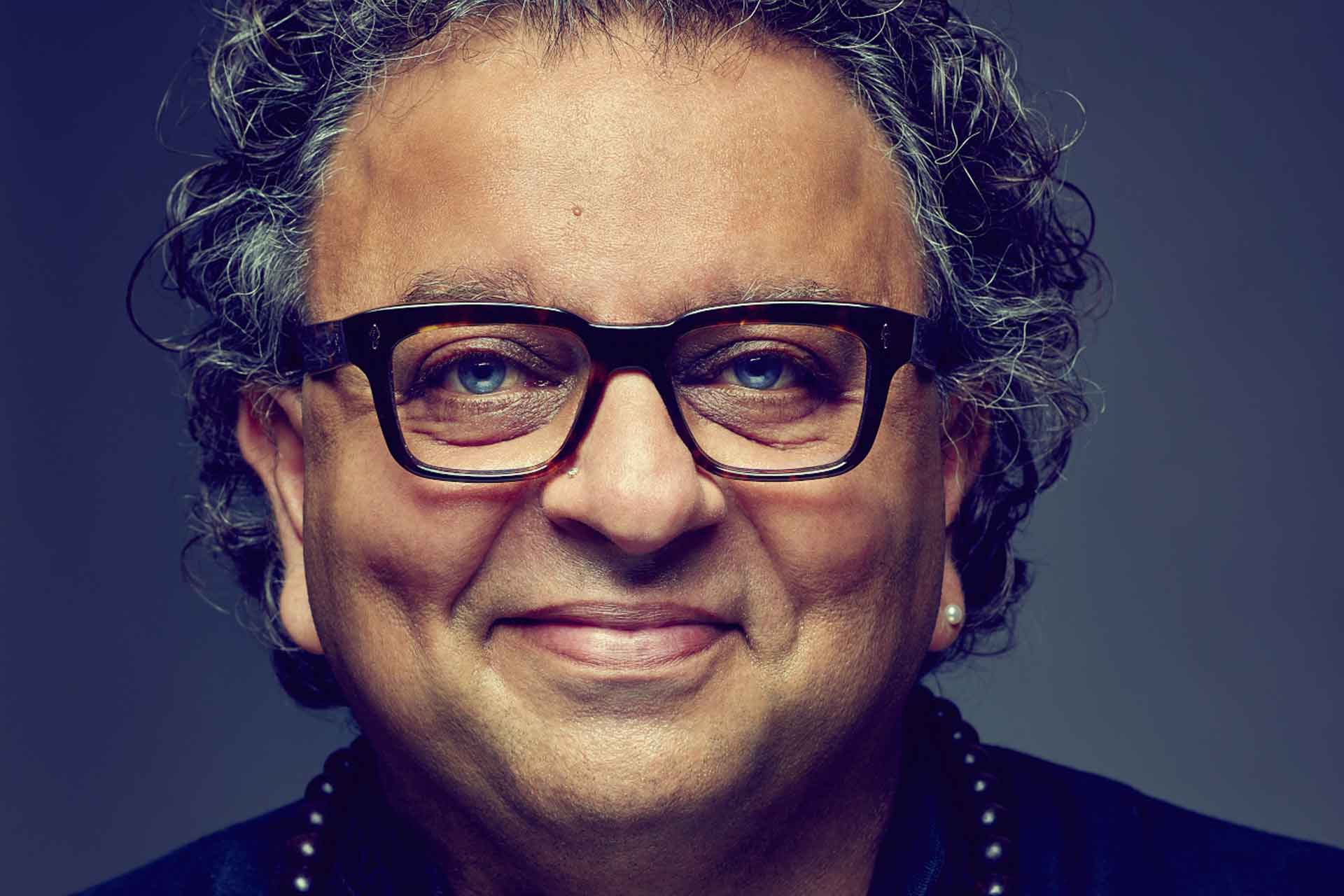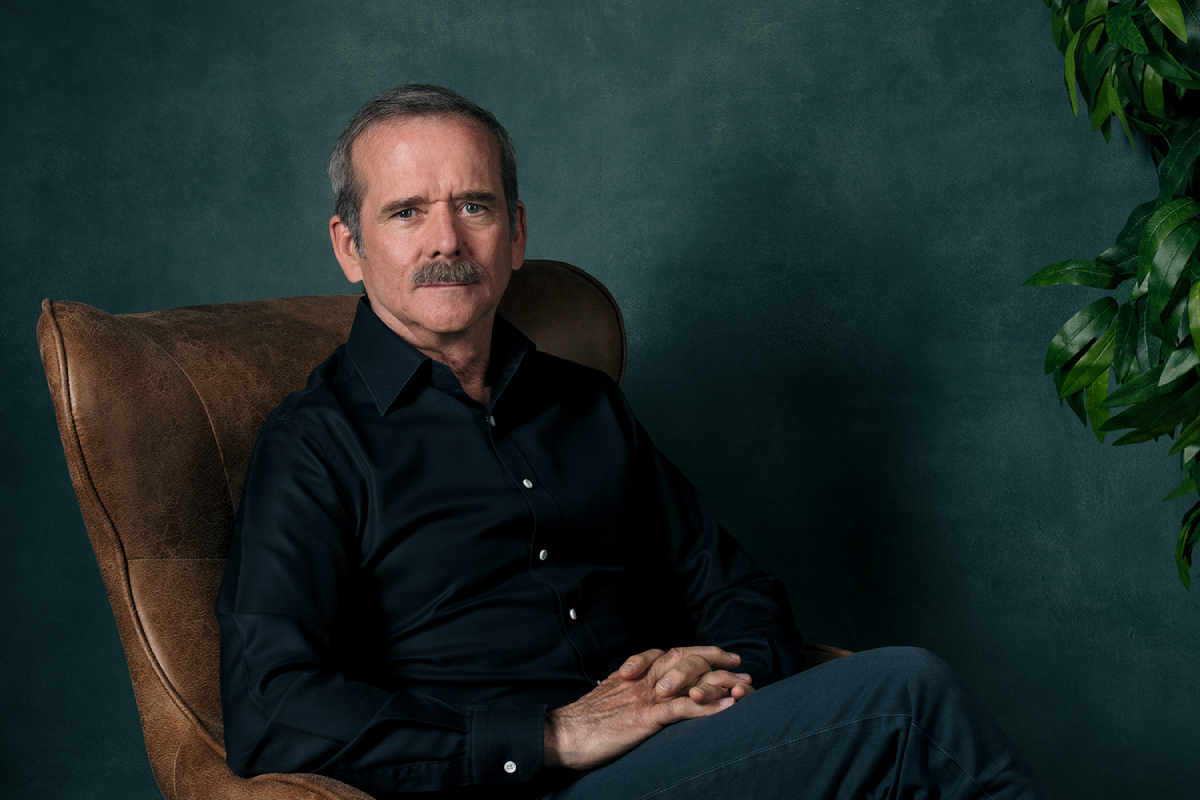Born and raised in India, Vikram Vij’s love affair with food started at an early age; he began cooking when he was just 10 years old, preparing meals for his mother and her friends. As an adult, he moved to study food and hospitality in Austria before moving to Canada, where his career as a chef really took off. He opened his first restaurant, Vij’s, in Vancouver at the age of 30, and soon built a career as a chef and restauranteur. Vij imparted some of his wisdom with The Edge in a previous edition of Winners’ Circle, and this is part of that interview.
You opened your first restaurant in Canada in 1994. Can you describe how Canada’s restaurant and food scene has changed since then?
In 1994, I won an award for best Asian restaurant. I took it humbly and accepted the award, but after four or five days I went back to the editor and said, “Thank you for the award, but please figure out where Asia is. You cannot just lump us – India, Sri Lanka, Thailand, Vietnam, Cambodia, Japan, China – into one category. You have to understand it.” Next year, we suddenly had a category for best Vietnamese, best Southeast Asian. I think I was the reason for this change because I took a stand and said, don’t lump us into one cuisine.
I just came back from Toronto, where I was speaking at this event, Sial. I was a keynote speaker, and all the major food companies were there including Coca-Cola, Loblaws, Longo’s, and Sobeys. We’ve come a long way, because we don’t have to call ourselves “ethnic” anymore. We are Indian. We are Chinese. We are Syrian. We are Cambodian. It should have its own place to grow. And obviously, fusion should happen. You should mix a little bit of Cambodian with Vietnamese. A little Chinese with Indian. That’s part of nature. Cuisine is like a river. It should flow constantly towards the goal of creating something new and different.
Where do you hope to see the food industry in 10 years?
There will be a good balance, where out of seven days, three days a week we eat at home, cook, relax, drink some wine, and two days will be, “Let’s just go out to eat, because I’m tired”, and the other two days will be for takeout. When you work in a cubicle, for example, you want to be social and you want to go out. Being in the restaurant industry, we are very social because we are meeting people all the time. Human beings are social creatures, not social media creatures.
In your latest book, Vij, you discuss your struggles with prejudice. How has that experience shaped you as an entrepreneur?
It has taught me that if anyone judges you right off the bat, you should listen to what they have to say, look them in the eye and say, “Thank you for your opinion, but I beg to differ.” Stand your ground for what you think, who you are. I always tell people to cook the food of your country or what your background is. Cook the food of your mother or grandmother, who loved you. Cook the food that reminds you of your heritage. Once you have that, use the experiences that you have now to create something new. Show respect to your background, but be innovative enough to experiment with new things.
You’re a sought-after leader in the food industry. What do you think makes a good leader?
Focus is the most important. Never lose focus. Don’t do things because you think money is going to make you happy. It’s the desire and the motivation, and to know that this is what you want to do, and be proud of what you’ve done. If you’re going to fail, then fail loudly. If you made a mistake on a dish or menu, be honest and say, “You know what, I screwed up on this dish.” Don’t blame others for your faults. Blame yourself for it, and get up and do what you need to do.
What three books would you recommend to entrepreneurs?
My book, Vij: A Chef’s One-Way Ticket to Canada with Indian Spices in His Suitcase, because it took us three years to write it. It’s an honest, genuine book which talks about the trials, turbulence and mistakes. One of my favourite books that I’ve always loved, I would take the train and I’d read Think and Grow Rich, by Napoleon Hill. I remember reading this and feeling so motivated. It’s a self-help book, but it was great and still does so much for me. And the third is Arlene Dickinson’s books, All In and Persuasion: A New Approach to Changing Minds. She’s written great books about success, and she’s been a great mentor on Dragons’ Den. She didn’t get much credit for it, but she did a fantastic job.
Jennifer D’Agostino | Contributing Writer




















